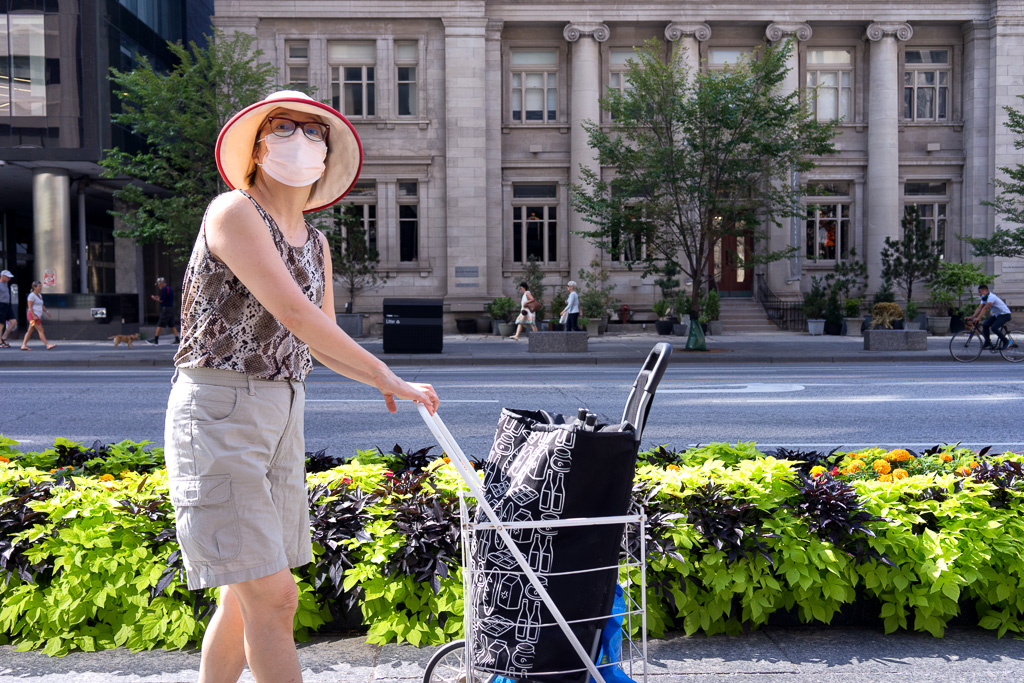
In an article posted December 01, 2021, the BBC reports that Twitter has rejigged its terms of use: it now reserves to itself the authority to remove images posted without consent of the people who appear in those images. Well, damn! There goes just about every image I’ve ever posted.
Recognizing that the headline announcing this change sounds a bit extreme, Twitter clarified that it is trying to address images that “harass, intimidate and reveal the identities of private individuals, which disproportionately impacts women, activists, dissidents, and members of minority communities”. This sounds all very laudable but forgive me if I treat these sentiments with skepticism. As a company with a market capitalization of 35 B, Twitter is in the business of making money, not of standing as a beacon of ethical conduct.
I have some thoughts:
1. The company that gave Donald Trump a platform to vault himself to the American presidency where he trumpeted thousands of lies claims that its TOS tweaks are meant to improve the quality of public discourse. Twitter has said that it will not remove an ostensibly offending image “if a particular image and the accompanying tweet text adds value to the public discourse, is being shared in the public interest, or is relevant to the community”. That is laughable, not because of Donald Trump and not because of the pornography that sprouts like mushrooms on Twitter, but because by definition nothing that happens on Twitter is public discourse.
Like all social media, Twitter is the virtual equivalent of POPS (privately owned public space). Since the rise of Thatcherism and Reaganomics—or neoliberalism, if you prefer—successive governments in all Western democracies have sold off public spaces to private interests. Often, now, what we take to be a public square, is in fact owned by a private entity which has no obligation to honour constitutionally entrenched rights like freedom of expression and freedom of the press. This was a hard lesson the Occupy movement learned when private security forces turfed protesters from public parks that turned out to be not so public after all.
One possible solution is government regulation. There is no reason a government can’t stipulate what kinds of speech/images Twitter can and can’t curtail. However, given the West’s laissez faire approach to multi-billion dollar corporations, I have low expectations here.
2. I am a street photographer and street photography habitually makes photographs without consent. Most street photographers practice their craft with benign intent. They observe/document/engage/critique the way people interact with built environments. At their best, they pose questions about what it means for us to function as social beings. At their best, they bolster our social memory. They help us understand who we are and who we might become. It would be a mistake to surrender the determination of our social memory to functionaries who work in the overweening shadow of the profit motive. We would lose our memory by increments, like a person in the early stages of dementia, hardly noticing the changes. But a decade or two later it would strike us: the utter vacuity of what remains.
3. A Twitter spokesperson states: “We’ve been complying with Right to Privacy laws in various countries since 2014, and this is really an expansion of those protections to everyone on Twitter”. Like most conversations about rights these days, people omit to mention that rights are not absolute, but are limited by competing rights and responsibilities. Determining the limits to a right falls to governments, not corporations. In Canada, where I live, and in most Western democracies, photographers have the right to shoot without consent where the subject has no reasonable expectation of privacy. This is not an absolute right, but in most circumstances it serves as a good guideline. As long as it remains the law of the land, it is the guideline I will follow, and if Twitter doesn’t like that, then maybe it should take the matter up with my country’s government. What it shouldn’t do is conduct itself as if this is a private contractual matter between Twitter and me.
4. One possible solution is to do what I do here. I own this space, so I’m not subject to the whims of other private interpretations of what does and does not stand in the public interest. Unfortunately, no one can find me here in this backwater of the internet because searchability has be relegated to an even bigger private concern—Google—which, with its market capitalization of 2.48 T, is 70 times the size of Twitter and large enough that it is effectively immune from government regulation.
Freedom of expression doesn’t stand a chance, does it?
